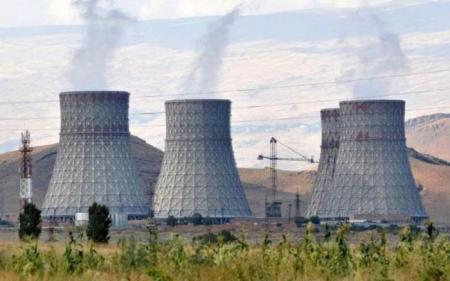
The Kremlin's special representative for international cooperation in sustainable development, Boris Titov, has announced that Russia is constructing over 10 nuclear power units in countries such as China, Iran, and Turkey. Reports TSN. This information comes from Kontrakty.UA.
In response to the increasing global energy demand driven by artificial intelligence and emerging markets, Moscow aims to enhance its influence as "one of the largest builders of new nuclear power plants in the world," especially given the stringent sanctions imposed on the oil and gas sector following the invasion of Ukraine.
This is also reported by Financial Times.
Russia is additionally constructing nuclear power stations in Bangladesh, Egypt, and India. According to an article published in 2023 by the Norwegian Institute of International Relations in the journal Nature Energy, "Russia's expanding foreign nuclear portfolio includes reactor construction, fuel supply, and other services across 54 countries."
As per FT, Russia is involved in the construction of more than one-third of new reactors worldwide. It is expected that Russia will build a plant with small modular reactors in Uzbekistan, and in 2023, it signed an agreement to construct a nuclear power plant with Burkina Faso.
Boris Titov stated that Russia anticipates high demand for nuclear energy from developing countries seeking cleaner energy sources, as well as from technology companies utilizing AI in data processing centers.
Meanwhile, the International Atomic Energy Agency (IAEA) forecasts that global nuclear generation capacity will increase to 950 GW (+155%) by 2050.
"Western governments have attempted to counter Russia's nuclear prowess: in May of this year, the U.S. banned the import of enriched Russian uranium. Except for Hungary, most Eastern European countries have signed contracts for fuel supply designed for Soviet-era reactors with the American company Westinghouse following the full-scale invasion of Ukraine," the article states.
At the same time, the new EU Commissioner for Energy, Den Jørgensen, asserted that efforts need to be scaled up to completely cease importing Russian nuclear fuel by 2027. However, Hungarian Prime Minister Viktor Orban and his Slovak counterpart Robert Fico declared that they would block any steps to limit Russia's civil nuclear energy.
They believe that Europe is exaggerating the risks that Russia could create a critical shortage of nuclear fuel, similar to what happened with gas in 2022, as "Rosatom is deeply invested in its reliability."
Many developing countries view nuclear energy as a means to meet their clean energy needs, which opens new potential markets for Russia.
The Malaysian Minister of Natural Resources and Environmental Sustainability, Nik Nazmi Nik Ahmad, commented to the publication that the country is "exploring the possibility of introducing nuclear energy." He noted that "all major players are in negotiations with the Malaysian government" regarding potential nuclear projects, although he did not specify which countries.
At the same time, the U.S. is concerned that countries are turning to China or Russia for the construction and servicing of nuclear power plants. According to Jake Levin, Director for Climate and Energy at the U.S. National Security Council, global competitiveness in this sector is a "huge issue."
It is worth noting that despite the Kremlin's attempts to downplay the negative impact of sanctions on the Russian economy, their alleviation is one of the main prerequisites for initiating ceasefire negotiations. However, a complete end to the war is detrimental to Putin and his circle, as it could weaken support for his regime.